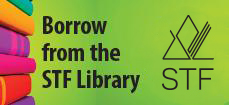Course Configurations
| (a) | Investigate the time-value of money (TVM). |
| (b) | Calculate future value of money using computer applications or technologies such as spreadsheets and graphing calculators. |
| (c) | Explain the relationship between saving and investing. |
| (d) | Investigate the savings and investing habits of Canadians and similar habits of people in other countries. |
| (e) | Summarize reasons for beginning to save and invest at a young age. |
| (f) | Investigate criteria important for making decisions about investing. |
| (g) | Discuss the function and purpose of interest as a source of earning. |
| (h) | Explain how investments can earn and lose money. |
| (i) | Explore the risks and rewards associated with investing. |





This Canadian resource supports the Financial Literacy curriculum and provides information at a suitable introductory level. The resource is organized under six headings for a total of 15 modules.
Topics covered:
- Goals, Values and Decision-making
- Getting and Earning Money
- Spending Money and Taking Control
- Borrowing Money and Using Credit
- Saving and Investing Money
- Protecting Assets and Planning for the Future.
The resource includes:
- Student Guide, English or French, free online PDF version or hard copies can be ordered at a minimal fee
- Teacher's Guide, English or French, free online version


This Canadian textbook is divided into five parts:
- Planning Your Personal Finances
- Managing Your Personal Finances
- Insuring Your Assets
- Investing Your Financial Resources
- Controlling Your Financial Future
The resource contains case studies, concept checks, assignments and assessment examples.
There are four purchase options:
- eBook
- eBook only (online version of textbook)
- Connect
- eBook, homework, adaptive assignments and study tools
- Connect and print text
- eBook, homework, adaptive assignments and study tools
- printed textbook
- Print text
- printed textbook only

The Indigenous Edition of Money and Youth builds on the original resource from the Canadian Foundation for Economic Education, CFEE. Damon Johnston, President of the Aboriginal Council of Winnipeg, provided guidance rooted in traditional teachings and the Seven Sacred Laws. Vanessa Everett, CEO of Economic Development with the Keewatin Tribal Council, adapted the original version by Gary Rabbior of CFEE. Input from respected individuals across Turtle Island also helped shape this edition.
Topics covered:
- Goals, Values and Decision-making
- Getting and Earning Money
- Spending Money and Taking Control
- Borrowing Money and Using Credit
- Saving and Investing Money
- Protecting Assets and Planning for the Future.
The resource includes:
- Student Guide, English, free online PDF version or hard copies can be ordered at a minimal fee
- Teacher's Guide, English, free online version

